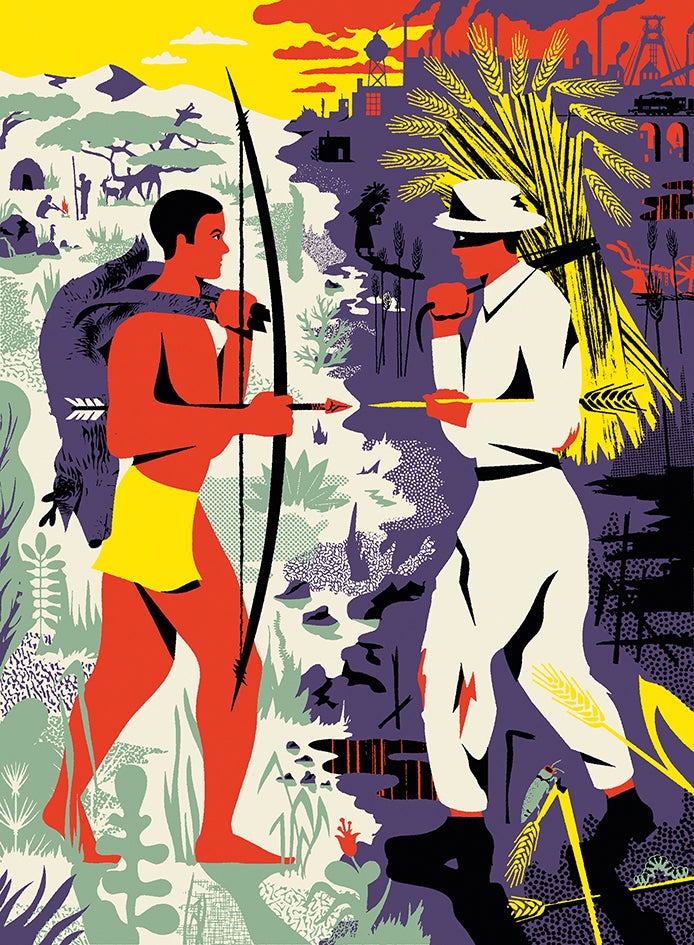The late David Graeber’s history of early human societies presents civilisation as a descent from anarchy into servility. But was man ever free?
By John Gray, November 3, 2021
How did we get stuck? According to the late David Graeber and his co-author David Wengrow, this is the most important question that can be asked about human history. For “the vast majority of human social experience”, we enjoyed “three primordial freedoms”: “the freedom to move, the freedom to disobey and the freedom to create or transform social relationships”. Early human societies were not without what we today would describe as inequalities, but they lacked the structures of domination that go with hierarchical government. Humankind lived in a peaceful anarchy.
Then something went “terribly wrong”:
It’s clear that something about human societies has really changed here, and quite profoundly. The three basic freedoms have gradually receded, to the point where a majority of people living today can barely comprehend what it would be like to live in a social order based on them. How did it happen? How did we get stuck? And just how stuck are we really?
The authors’ questions come not only from their scholarly endeavours – Graeber’s as a professor of anthropology at the London School of Economics (LSE), Wengrow’s as professor of comparative archaeology at University College London – but also from Graeber’s personal history as an activist.
An anarchist since his teens, Graeber was a prominent figure in Occupy Wall Street in 2011. His academic work and political activism were closely linked, which may explain some of the problems he encountered in his career. Born into a working-class family in New York City in 1961, educated at Phillips Academy Andover and pursuing his doctoral work at the University of Chicago, he taught at Yale between 1998 and 2005. Despite strong support from students and leading figures in his field, he was denied the opportunity to apply for tenure and was unable to find another academic position in the US. Fortunately, British universities were not so petty-minded. In 2008 he joined Goldsmiths College in London, and in 2013 became a professor at LSE.


